This Year in Food and Farming
A recap of 2021, a year filled with equal parts hope and disappointment.
This Year in Food and Farming
A recap of 2021, a year filled with equal parts hope and disappointment.
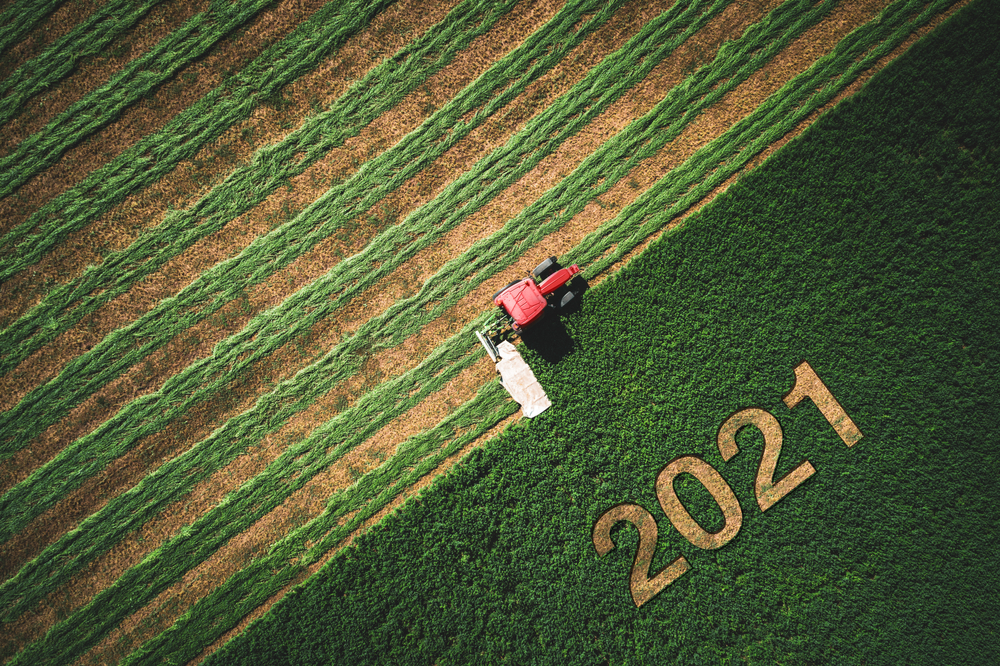
2021: A year filled with highs and lows.by Valentin Valkov, Shutterstock.
For a short while, 2021 seemed like it might bring about all kinds of fresh, new developments. A new president was sworn in; vaccines had just begun rolling out; maybe things would begin to improve. They did, in some ways. In others, they deteriorated and 2021 continued COVID-19’s streak of domination. But plenty of other things happened too, especially in food, farming and agriculture. Here are five of the biggest milestones of the year.
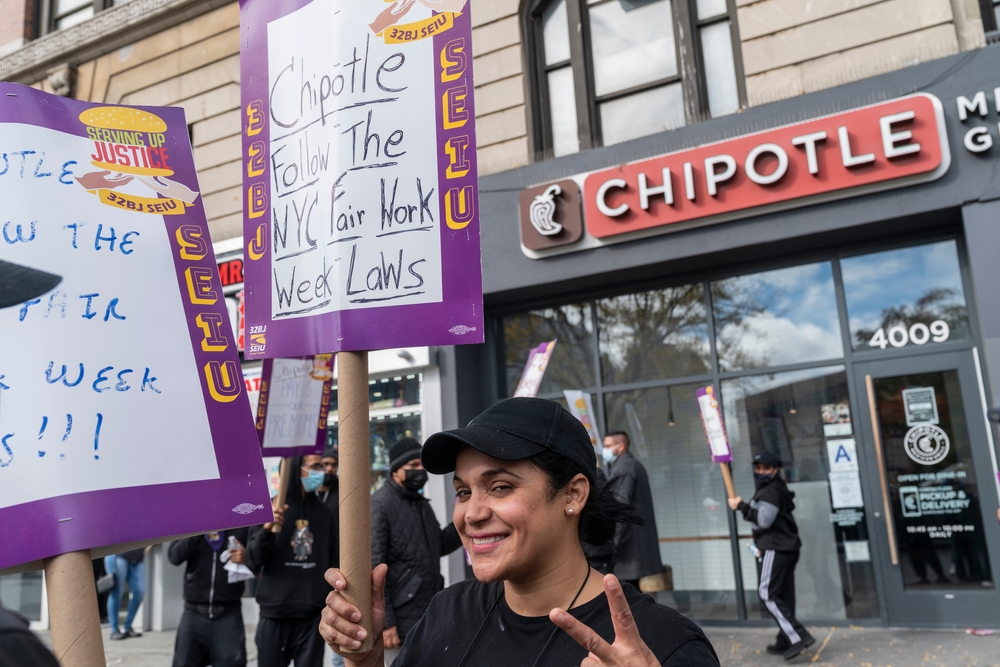
The Labor Revolution
Labor movements exploded across the United States, with unions gaining traction across all kinds of industries. Unionization had been on a steady decline since the 1950s, but the uncertainty brought on by COVID-19 seemed to spark a desire for equitable collective bargaining.
The food world was a major part of this. Huge strikes took place at Kellogg’s and Heaven Hill (the distillery parent company of Evan Williams and others). More than 10,000 John Deere workers went on strike, fighting for better wages and benefits. Even the restaurant industry, which previously had extremely low union membership rates, started to unionize—including in several Starbucks locations in Buffalo, New York. On the other hand, meatpacking plants, which actually had pretty significant union presence already, couldn’t seem to do much to ensure the safety of workers there.
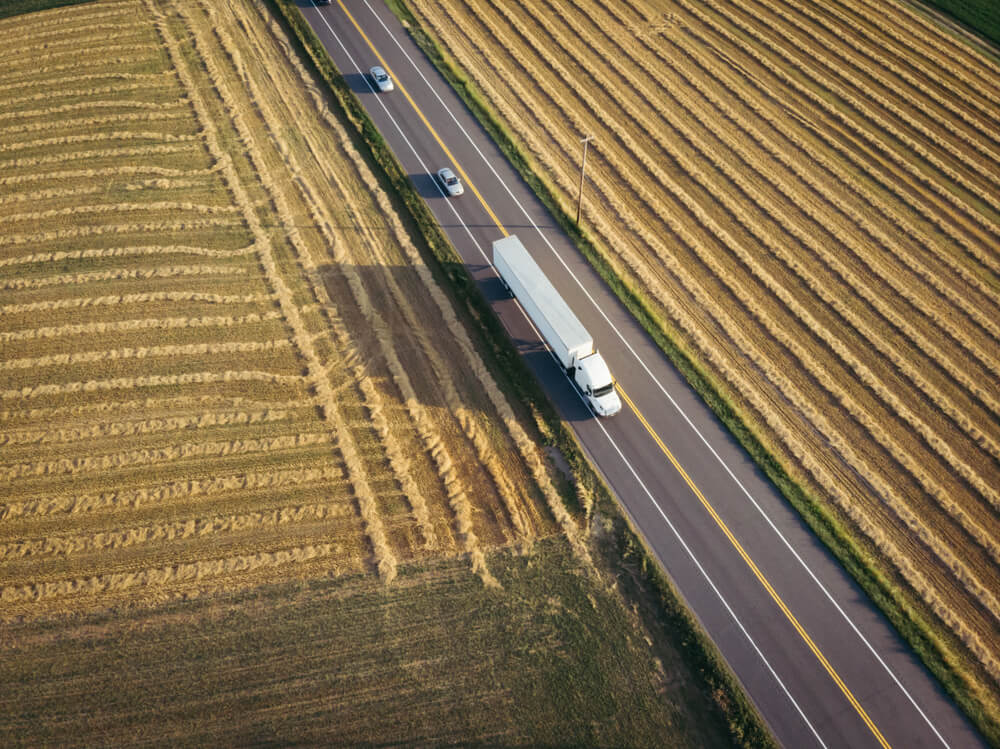
The Supply Chain Goes Mainstream
The supply chain, the complex series of stops and obstacles between a producer and consumer, was perfectly well known to farmers long before the pandemic hit. But in 2021, the idea of supply chain interruptions went mainstream. Crumbling infrastructure, from a cracked bridge over the Mississippi, to a ship blockage in the Suez Canal, to power outages and dumped products, the supply chain, which had always been all around us, seemed obvious and omnipresent.
President Biden made infrastructure and supply chain improvements a major platform, pushing massive bills to fix the roads, lines of commerce, bridges and other pieces of the supply chain puzzle. It is, as of late December, unclear whether the latest omnibus bill will pass through the Senate.
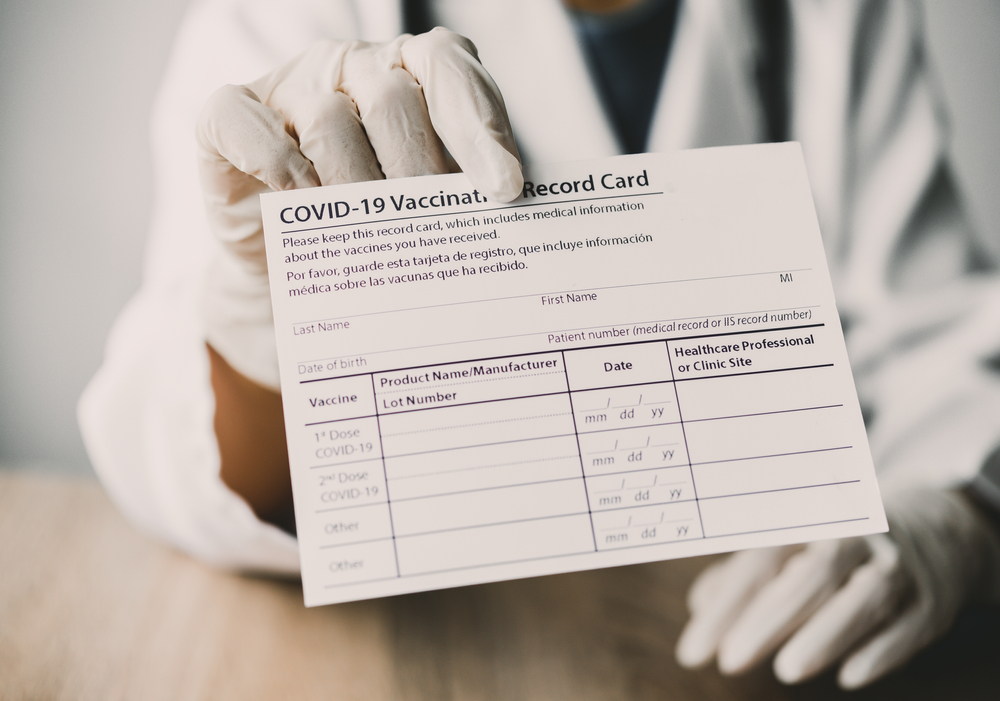
The Vaccine Debate Heats Up
Few things in 2021 became more politicized and fiery than the concept of vaccines and vaccine mandates. As of late December, slightly more than 61 percent of Americans were fully vaccinated for COVID-19, and a vocal minority made noisy political hay out of refusing. In agriculture, an industry that is highly centralized under just a few entities, vaccine mandates were more powerful than hardly anywhere else. The USDA, which employs around 100,000 people, made vaccines a requirement to work (barring rarely-given-out exemptions). That included many who only occasionally work with the USDA; if you farm in the United States, you interact with the USDA.
Several huge corporations, with tens of thousands of employees, also mandated that employees be vaccinated. Those include Tyson Foods, McDonald’s, and many other companies that employ people both on the front lines and in the food and agriculture field.
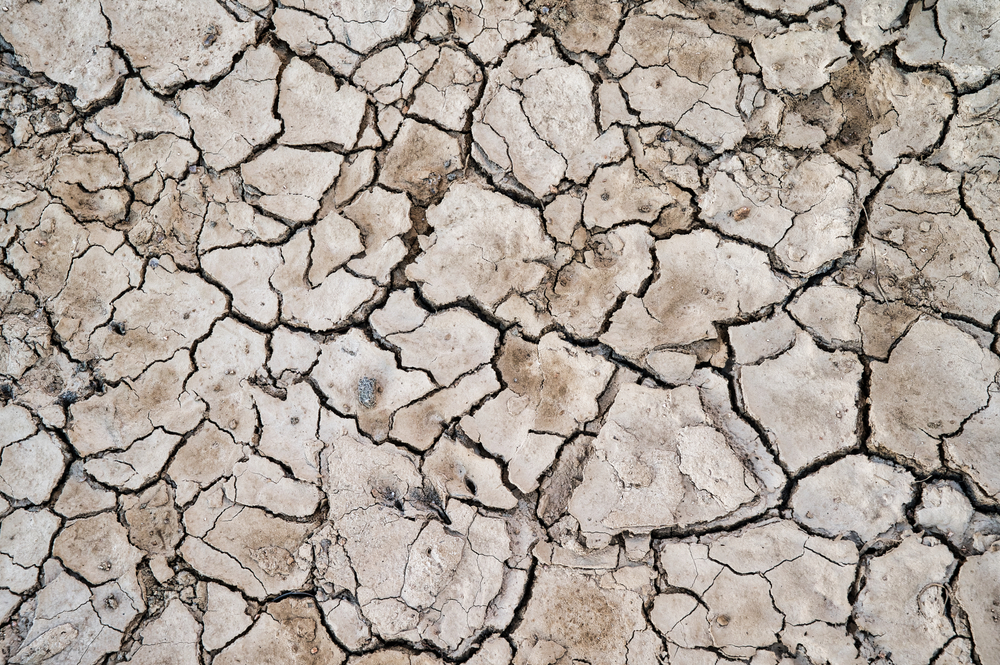
Water, Water, Nowhere
In the West, water vanished. The American West has been in what is literally called a “megadrought” for decades, and relies on massive amounts of water for agriculture, especially in California—the country’s biggest agricultural state. Early this summer, the drought forced farmers to make difficult decisions, including culling herds, stripping trees of fruit and forgoing planting crops this year.
A particularly dry winter led to the first-ever declaration of a water shortage in the Colorado River. The river supplies much of the Southwest and parts of Mexico with their water needs. Lake Mead and Lake Powell, two of the largest reservoirs in the country, both experienced their lowest levels since they were constructed. Both also are fed by the Colorado River, and agriculture takes about 70 percent of that river’s relocated water. In California, the state also instituted large curtailments of water from the San Joaquin Delta, which supplies a lot of the Central Valley. The states created emergency water rationing systems, but there’s no real end in sight. This is because the western states simply use much more water, especially for agriculture, than what is coming in to replenish the aquifers, rivers and reservoirs. Drastic action is needed; what form that will take remains unclear.

Long-Awaited Programs Finally Arrive
One of the only real benefits of the COVID-19 pandemic has been, the currently stalled Build Back Better Act notwithstanding, a new flow of money from the government. Because times have been so hard, the government has been forced to pass aid bills and expansions of existing programs. Many of those seem like they’ll simply stick around, as they were sorely needed before the pandemic and will be afterwards.
Among those: a huge expansion of SNAP, which includes beefing up infrastructure like online ordering and customer service. The Biden administration attempted to pass billions of dollars in debt relief to disadvantaged, primarily Black, farmers. Black farmers have historically been marginalized by the USDA, sometimes criminally so. (This one, alas, was delayed by a “reverse racism” lawsuit and remains held up by conservatives in Congress.)
Conditions in meatpacking plants, long one of the most dangerous jobs in the country, were suddenly in the public eye, leading to bill proposals and action taken to improve them. There will be heat-related labor protections. There may be a ruling on the right to repair. There may be new paths to citizenship for immigrant farmworkers.
These improvements have not, to be absolutely clear, done anything like end hunger in America, stop or prevent racism in the food and agriculture industries or seriously address climate change in impactful ways. But the efforts are not nothing. Because of the devastation brought by the COVID-19 pandemic, there will be improvements in access to food, in the supply chain, in social equity and in environmental sustainability.
Follow us
This work is licensed under a Creative Commons Attribution-NoDerivatives 4.0 International License.
Want to republish a Modern Farmer story?
We are happy for Modern Farmer stories to be shared, and encourage you to republish our articles for your audience. When doing so, we ask that you follow these guidelines:
Please credit us and our writers
For the author byline, please use “Author Name, Modern Farmer.” At the top of our stories, if on the web, please include this text and link: “This story was originally published by Modern Farmer.”
Please make sure to include a link back to either our home page or the article URL.
At the bottom of the story, please include the following text:
“Modern Farmer is a nonprofit initiative dedicated to raising awareness and catalyzing action at the intersection of food, agriculture, and society. Read more at <link>Modern Farmer</link>.”
Use our widget
We’d like to be able to track our stories, so we ask that if you republish our content, you do so using our widget (located on the left hand side of the article). The HTML code has a built-in tracker that tells us the data and domain where the story was published, as well as view counts.
Check the image requirements
It’s your responsibility to confirm you're licensed to republish images in our articles. Some images, such as those from commercial providers, don't allow their images to be republished without permission or payment. Copyright terms are generally listed in the image caption and attribution. You are welcome to omit our images or substitute with your own. Charts and interactive graphics follow the same rules.
Don’t change too much. Or, ask us first.
Articles must be republished in their entirety. It’s okay to change references to time (“today” to “yesterday”) or location (“Iowa City, IA” to “here”). But please keep everything else the same.
If you feel strongly that a more material edit needs to be made, get in touch with us at [email protected]. We’re happy to discuss it with the original author, but we must have prior approval for changes before publication.
Special cases
Extracts. You may run the first few lines or paragraphs of the article and then say: “Read the full article at Modern Farmer” with a link back to the original article.
Quotes. You may quote authors provided you include a link back to the article URL.
Translations. These require writer approval. To inquire about translation of a Modern Farmer article, contact us at [email protected]
Signed consent / copyright release forms. These are not required, provided you are following these guidelines.
Print. Articles can be republished in print under these same rules, with the exception that you do not need to include the links.
Tag us
When sharing the story on social media, please tag us using the following: - Twitter (@ModFarm) - Facebook (@ModernFarmerMedia) - Instagram (@modfarm)
Use our content respectfully
Modern Farmer is a nonprofit and as such we share our content for free and in good faith in order to reach new audiences. Respectfully,
No selling ads against our stories. It’s okay to put our stories on pages with ads.
Don’t republish our material wholesale, or automatically; you need to select stories to be republished individually.
You have no rights to sell, license, syndicate, or otherwise represent yourself as the authorized owner of our material to any third parties. This means that you cannot actively publish or submit our work for syndication to third party platforms or apps like Apple News or Google News. We understand that publishers cannot fully control when certain third parties automatically summarize or crawl content from publishers’ own sites.
Keep in touch
We want to hear from you if you love Modern Farmer content, have a collaboration idea, or anything else to share. As a nonprofit outlet, we work in service of our community and are always open to comments, feedback, and ideas. Contact us at [email protected].by Dan Nosowitz, Modern Farmer
December 23, 2021
Modern Farmer Weekly
Solutions Hub
Innovations, ideas and inspiration. Actionable solutions for a resilient food system.
ExploreShare With Us
We want to hear from Modern Farmer readers who have thoughtful commentary, actionable solutions, or helpful ideas to share.
SubmitNecessary cookies are absolutely essential for the website to function properly. This category only includes cookies that ensures basic functionalities and security features of the website. These cookies do not store any personal information.
Any cookies that may not be particularly necessary for the website to function and are used specifically to collect user personal data via analytics, ads, other embedded contents are termed as non-necessary cookies.